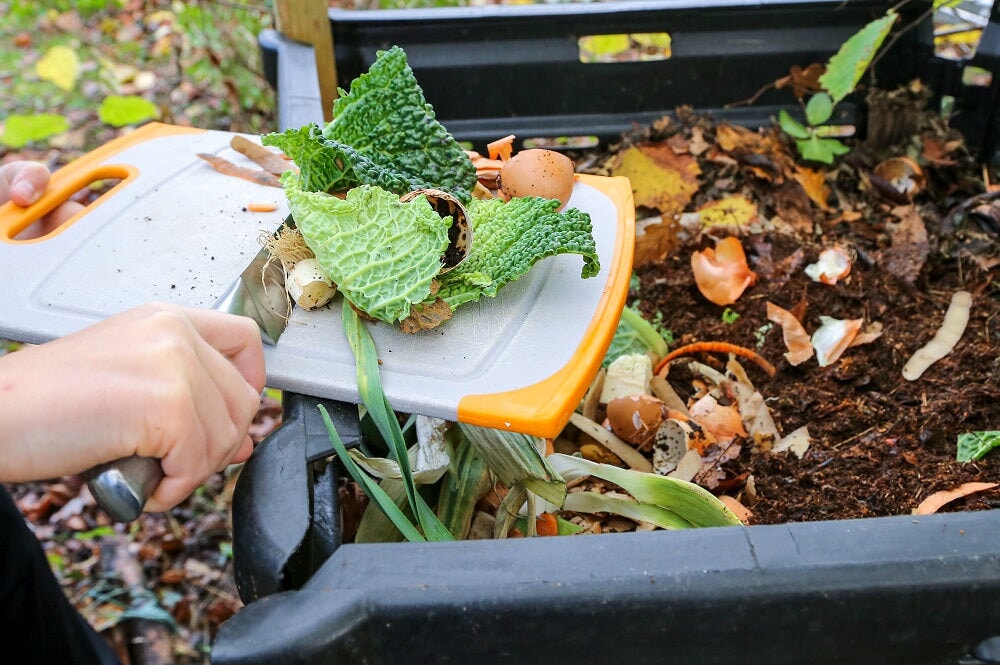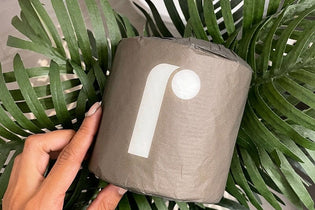
TLDR
Composting is the process of recycling organic matter — like food waste, yard waste, and grass clippings — into nutrient-rich soil. The result of this process is called compost, an earthy material that's wonderful for plants. The benefits of composting go beyond just plant growth - it is also great for the environment.
Composting significantly reduces greenhouse gas emissions, particularly methane, a potent gas released when organic waste decomposes in landfills. Landfills are one of the largest sources of human-related methane emissions, according to the Environmental Protection Agency.1 By composting, we reduce our carbon footprint and add valuable nutrients back into the soil, helping the ecosystem overall.
Composting Benefits Soil
Composting promotes soil health by improving soil structure; making heavy clay soil lighter and sandy soil more water-retentive. Organic material from the compost also increases the soil's capacity to hold water and reduces soil erosion. This improved soil structure fosters a balanced ecosystem because it encourages beneficial organisms, like earthworms, to inhabit the soil.
Compost can provide essential nutrients to soil by being used as organic fertilizer. It helps regulate soil pH, improves soil quality, and won't harm the soil over time (like synthetic fertilizers would).
Composting Can Reduce Waste and Save Money
Food scraps and yard waste make up a significant portion of the solid waste we produce. We can significantly reduce the amount of waste that goes to landfills by composting organic waste at home.
In addition to reducing waste, composting can also save money. Using finished compost as an organic fertilizer for your garden means that you no longer need to buy synthetic fertilizers. This is not only good for your wallet, but also good for your plants.
Composting is Better for the Environment
When we compare composting to landfills, composting is the clear winner. When organic matter decomposes in landfills, it does so without oxygen, resulting in methane gas. This is problematic because methane gas is 25 times more potent than carbon dioxide in trapping heat.2
Composting, by contrast, is an aerobic process (with oxygen), which results in carbon dioxide - a far less potent greenhouse gas.
How to Get Started with Composting at Home
Home composting is a simple process that only requires a small amount of effort. Start with a compost bin or designated compost pile in your yard. Add a mixture of green material (like food scraps and grass clippings) and brown material (like leaves and twigs) in roughly equal parts. Turn the compost pile periodically to ensure it decomposes evenly and aerobically. After a few months, you'll have a pile of finished compost ready to enrich your garden. For more information, explore our guide on how to compost at home.
Common Misconceptions About Composting
Despite the clear benefits of composting, some misconceptions still exist. Many believe that composting is labor-intensive and complicated, but in reality, it can be as easy as collecting food scraps and yard waste and letting nature do the rest.
Others worry about unpleasant smells and pests, but a properly managed compost pile should not smell bad. As for pests, as long as the compost pile has the right balance of materials and is turned regularly, it shouldn't attract any more pests than a regular garden would.
Another misconception is that composting requires a large outdoor space. While it's true that outdoor composting is more common, indoor composting options like vermicomposting (using worms to break down organic waste) or bokashi (a fermentation-based method) can be used in apartments or homes with limited space.
Lastly, some people believe that composting harms the environment because it produces carbon dioxide. While composting does generate some carbon dioxide, it's important to note that composting also sequesters carbon and reduces the methane emissions that would have been created by landfills. The overall impact composting has on the environment is positive.
The benefits of composting are undeniable. This natural process not only improves soil health and promotes plant growth but also reduces waste, saves money, and lessens our carbon footprint. By debunking common misconceptions and understanding the benefits of composting, more people can adopt this sustainable practice and contribute to a healthier planet. So, gather your food scraps and yard waste, and start composting today!
Additional Eco-Friendly Options for Your Home
Looking for more ways to help the environment? Try our range of sustainable paper products, including bamboo toilet paper, recycled paper towels, wholesale toilet paper, and other eco-friendly options. Our products are a high-quality alternative to traditional paper products.
Sources:
- EPA.Basic Information about Landfill Gas.https://www.epa.gov/lmop/basic-information-about-landfill-gas
- EPA.Importance of Methane.https://www.epa.gov/gmi/importance-methane




0 comments